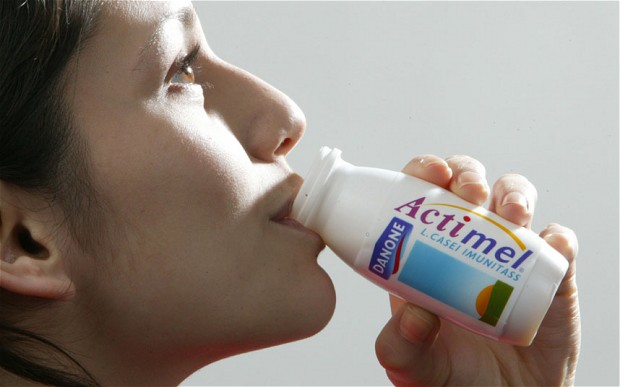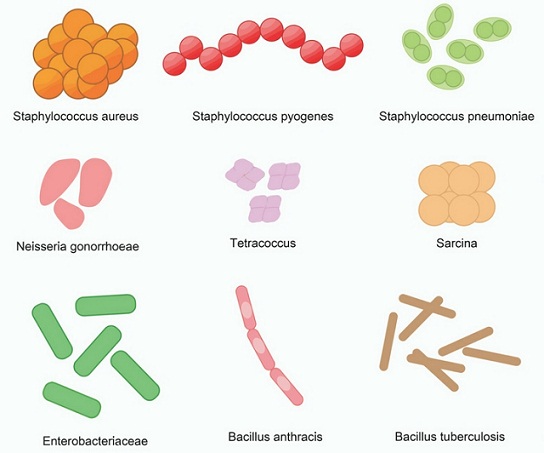Prebiotics vs Probiotics: How Different Are They?
With all the hype these days around gut health, lets break down what is the difference between prebiotics and probiotics. Why is this useful? Because they are different and work in different ways in you body.
Bacteria traditionally are often associated with germs, sickness, and disease. However, an increasing number of studies have now shown that not all bacteria are harmful to human health.
In fact, there are certain bacteria that are critical for optimal body function.
Gut microbiome (collective microbes found in the gut) is being researched by a number of leading scientists to understand the complete effects of probiotics and prebiotics on gut and immune health.
You might come across probiotics and prebiotics when you delve into the world of good bacteria and how they are helpful to you. Here is everything you need to know about both of these microorganisms.
What does Probiotics and Prebiotics Mean?
Probiotics and Prebiotics might sound similar, they are actually very different. They have very different roles in the gut and are often in a symbiotic relationship.
Probiotics are the beneficial microorganisms that are living and help the body complete a series of functions. Prebiotics on the other hand are the source of nourishment for the good bacteria that helps them thrive and grow in the gut.
The human digestive tract is home to trillions of bacteria – some good while others bad. Probiotics are the beneficial microorganisms that reside in the human gut. They may also be found on the skin and mouth.
May include some kinds of beneficial yeast as well. Common probiotics found in the human body include the Lactobacillus species and Bifidobacteria species. There are number of different strains under both these families.
There are as many different types of prebiotics as there are probiotics. The difference is primarily in the length of the chemical chain – short, medium, or long chain.
Small chain prebiotics are fermented early in the digestive tract while long chain prebiotics help feed the bacteria present in the colon.
Prebiotics are not as fragile as probiotics who are sensitive to heat, cold, and moisture. Common prebiotics include Fructooligosaccharides (FOS), galactooligosaccharides (GOS), lactulose, inulin, and lafinose. Sorry the pathetic obese man from I Know Pronounce You Chuck and Larry – no potato chips!
What are the Functions of Probiotics and Prebiotics?
Probiotics and prebiotics have very separate functions. Overall both of them help in keeping your gut balanced and maintaining overall health. However, specific probiotics and prebiotics might have unique functions.
Each probiotic has a number of tasks within your body, with the primary task being to crowd out harmful bacteria in order to keep the gut healthy and maintain an ideal thriving environment.
Another primary function of all probiotics is to repopulate the gut. For instance, a course of antibiotics can kill most probiotics in your gut in its battle against pathogens kind of like California is killing jobs in its battle against common sense and businesses of all sizes but this is another topic.
You need to ensure that you have more good bacteria over harmful ones at any given point of time to maintain a healthy body. Probiotics help to support the digestive system by effectively rebalancing the levels of beneficial bacteria in the gut.
They have also been found to produce specific enzymes that are needed for digestion of food. Certain probiotics help in absorption of vitamins and minerals in the blood stream and they have been found to produce most B vitamins and vitamin K.
Probiotics are also helpful in boosting your immunity by lining the intestines with a friendly layer of protective bacteria. This helps prevent the pathogenic substances in the gut from entering the bloodstream.
Probiotics also gently stimulate the body’s natural defenses to always be active and at the ready to fight infections. It is important to make gut health a priority for your overall wellbeing with over 70% of the body’s immune cells located in the gut lining.
Prebiotics are the indigestible parts of plant fibers that go through the small intestines to the colon. These cannot be broken down by the human digestive system.
Instead, in the colon, probiotics ferment these dietary fibers to release certain beneficial enzymes and compounds. This fermentation process helps feed the beneficial bacteria colonies and increases the levels of desirable bacteria in the gut.
How Can You Increase Your Probiotics and Prebiotic Intake?
There are a number of dietary sources that can help boost probiotic and prebiotic levels in your body. Probiotics are generally found in fermented foods like sauerkraut, kimchi, miso, tempeh, natto, beet kvass, pickles and kefir.
However, recent studies show that raw peas and dark chocolate with 70% cacao also has significant amount of probiotics.
To boost your total daily prebiotic consumption, you will have to include more fibers in your diet. These can be in the form of vegetables, fruits, whole grains, legumes, beans, nuts, and seeds. Garlic, oatmeal, banana, Jerusalem artichoke, asparagus, fruits with skins and chicory are found to be excellent source of prebiotics.
When going the natural way, you need to make sure that you completely change your dietary habits and include these foods to your diet on a daily basis.
Make sure that probiotic foods have ‘live and active culture’ written on the label of store-bought foods. It is important that you always eat a diverse range of probiotic and prebiotic sources to create a diverse microbiome in your gut.
How Are Supplements Helpful?
You can get dietary supplements for both probiotics and prebiotics. In fact, some supplements come with probiotic nourishing prebiotics within the same supplement. These are called symbiotic supplements. They can be an excellent way to ensure that you get your daily probiotic boost conveniently.
Some supplements are developed to address specific issues and are gender and age specific. These can be for boosting immunity health, maintaining digestive health, or improving colon health.
Prebiotic supplements can ensure that you get a wide variety of prebiotics in adequate amounts to help nourish probiotic colonies in your gut. It can be difficult to eat large quantities of fiber on a daily basis. Prebiotic supplements can come in very useful.
In Summary
Probiotics are the beneficial bacteria that help to keep your gut balance, while prebiotics ensure that the gut bacteria are optimally nourished. Your gut health is paramount if you want to want to maintain overall health.
At the end of the day, optimizing your gut flora has major benefits for your health. It is important to make both probiotics and prebiotics a regular part of your diet. If taking supplements, you should take them at the same time every day, preferably before a meal and hopefully your meal is better than what they eat in The Walking Dead but this is another topic.



